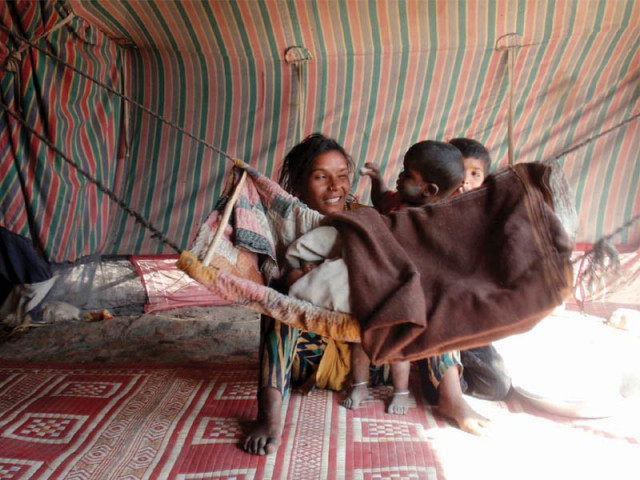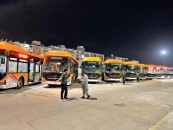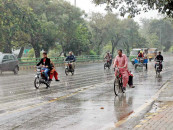‘No kapra, no roti, but definitely a makaan six feet under soon’
People living in Sukkur’s tent city have nowhere to go.

“The landlord does not allow us to build shelter in the katcha area and the government officials want us to leave from here,” she said. “Why is life so long for the poor? Is everything good in life for the rich only?”
The railway police demolished Shanti’s hut with many others two days ago in a tent city near the Rohri railway station. She is one of the thousands of people who fled their homes in the floods in 2010 to take up in these encampments.
Shanti talked about the ups and downs of her life. She said that her family used to work for a landlord in the katcha area of Salehpat. “As long as we worked hard and made him money he was happy,” she said. “But as soon as the floods came in 2010 and his crops were destroyed, he refused to even acknowledge us.”
Since then Shanti has lived here with her family. She sells balloons and toys in Sukkur and Rohri and her children beg on the street.
The tent city houses people from diverse backgrounds. The families come from Kot Addu, Bahawalpur, Lodhran, Rahim Yar Khan, Liaqat Pur, Khanewal and Qasur in Punjab, Daharki, Salehpat Nara and other parts of Sindh. Some are even from Quetta.
Amjad Ali lost everything because of the floods. He left Kot Addu and came to Rohri. “Do you see kapra,” he asked as he pointed to his bare-bodied son. “We don’t have roti too. But I am sure we will get an underground makaan after we die!”
According to him, the railway and municipal staff often came here and threw their belongings about because the land the people camped on belonged to the Pakistan Railways. Just last week, he said, the police razed two bathrooms which the residents had chipped in to build.
Rukma and Seeta Bagri also live at the tent city and worked for a landlord in Nara taluka. But now even he isn’t interested in the plight of her and her two children.
Published in The Express Tribune, February 15th, 2012.



















COMMENTS
Comments are moderated and generally will be posted if they are on-topic and not abusive.
For more information, please see our Comments FAQ